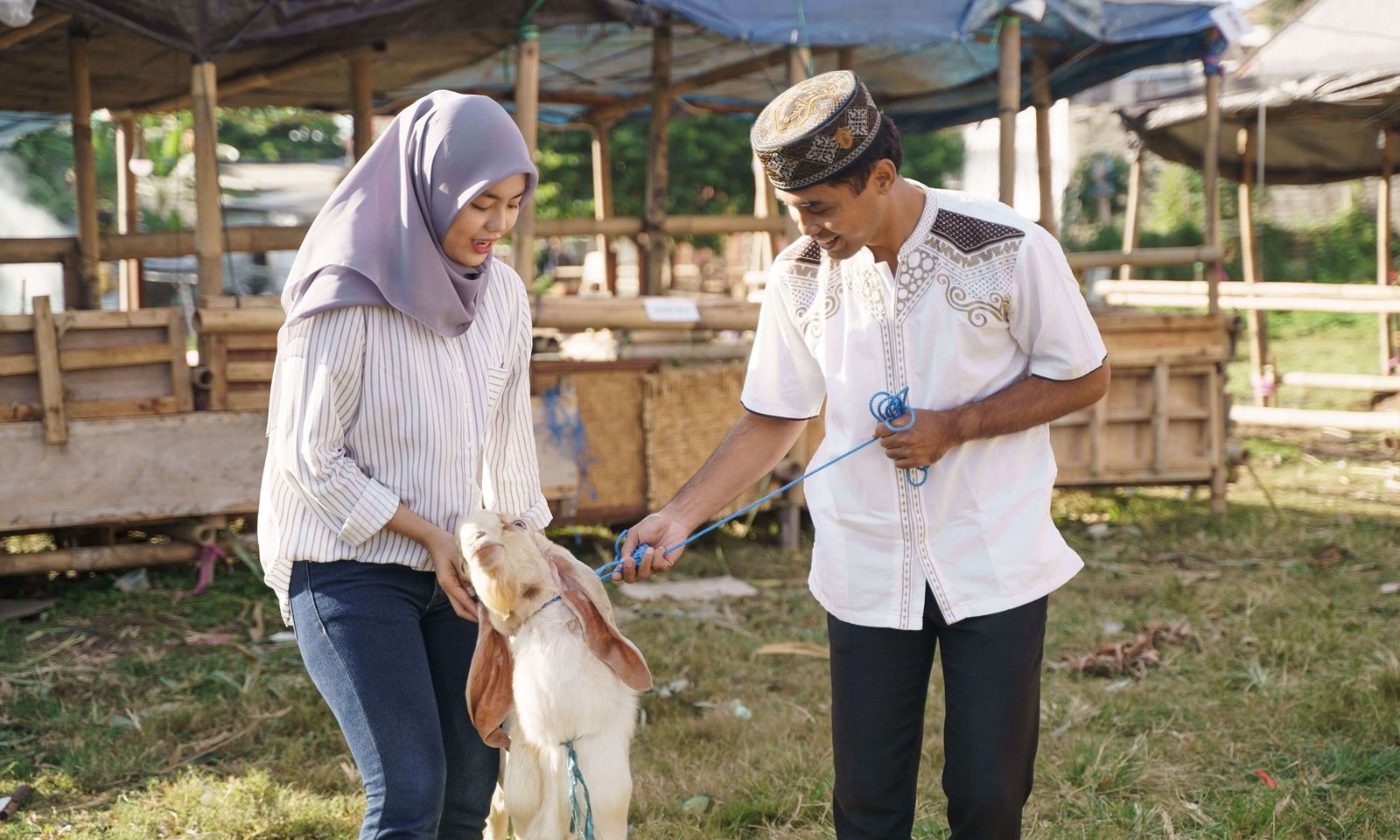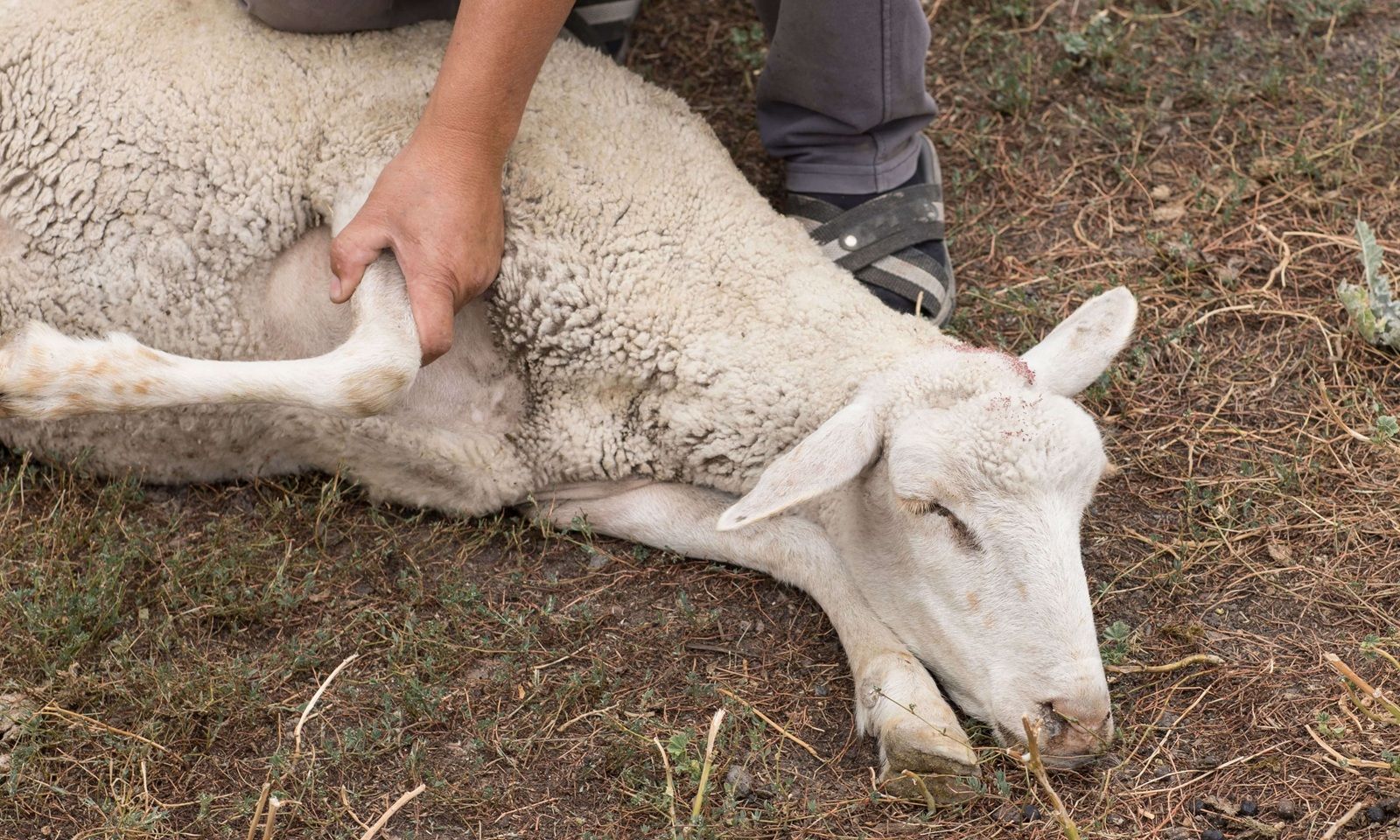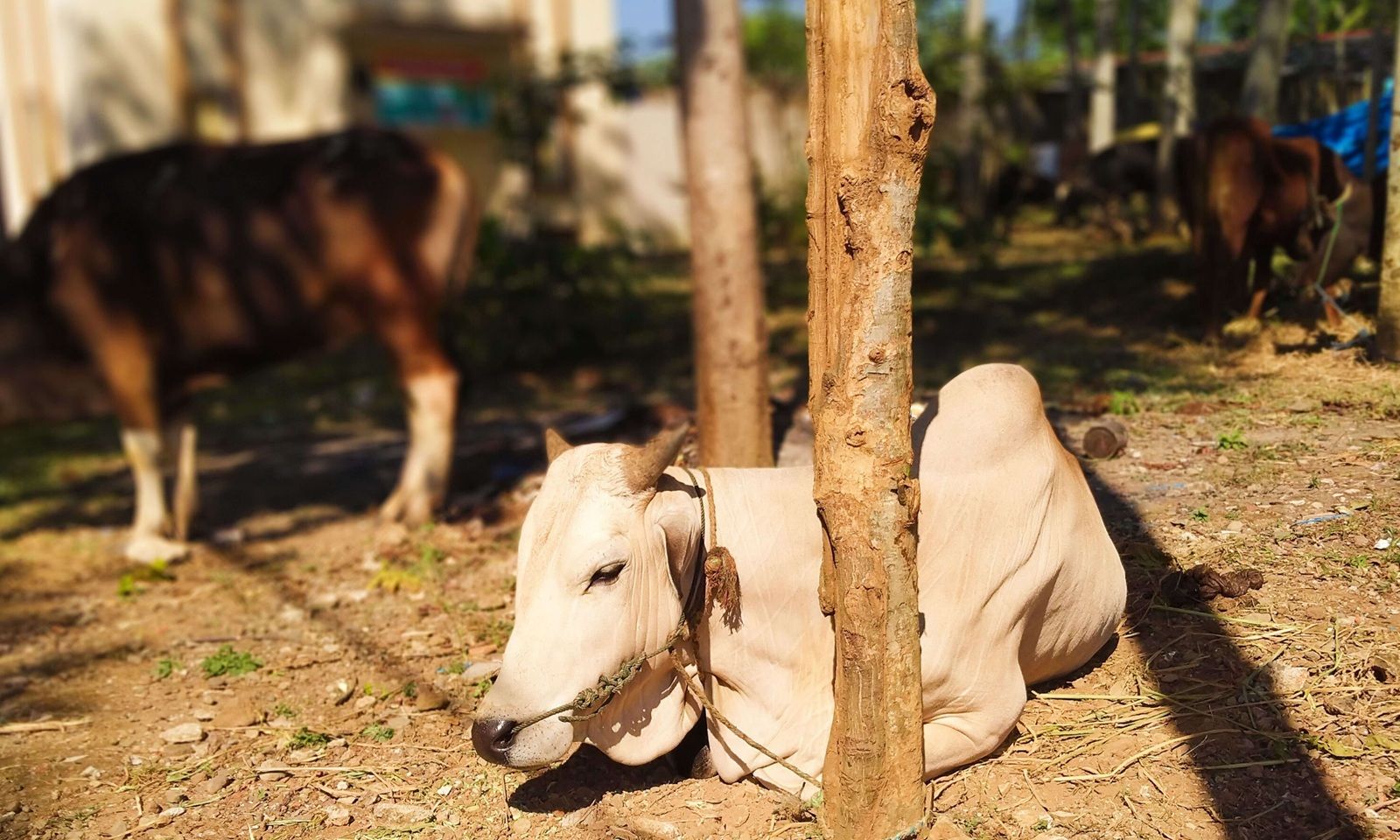Qurbani Rules For Husband And Wife In Islam
-
Lily Syahirah Ramlan
-
17 June 2025
Qurbani rules for husbands and wives in Islam differ according to their financial roles and income. According to the school of Hanafi, Qurbani is obligatory for each eligible and sane Muslim, there are different rules for each role within the family, whether it be husband or wife.
In Islam, Qurbani is an act of Allah’s obedience in which Muslims around the world sacrifice an animal or more than one animal according to their affordability. There are certain rules and regulations governing Qurbani in Islam, such as the eligibility of the qurbani animal and family rules for qurbani.
If you want to know whether Qurbani is fard on whom, either husband or wife? We are here with detailed and authentic Islamic rulings. Let’s discuss the Qurbani rules and regulations for husband and wife, and who is eligible for Qurbani?

Is Qurbani Fard or Sunnah for Husband and Wife?
There is a difference of opinion among various schools of thought on who Qurbani is compulsory for. According to the Hanafi school of thought, Qurbani is wajib for those who have wealth more than their needs and who possess Nisab (Minimum value of wealth to become eligible for wajib qurbani); however, other sects (Shafi’i, Maliki, Hanbali) consider qurbani as highly recommended Sunnah (Sunnat-e-muqaddah) but not wajib / obligatory.
One Small Animal (Sheep/goat) On Behalf of the Whole Family
In Islam, it is permissible that only one member of the family can perform one qurbani on behalf of all the family members, as proved by this Hadith.
Imam Tirmidhi narrated: “I asked Abu Ayyub al-Ansari: How was the sacrifice done during the time of the Messenger of Allah (peace be upon him)?” He replied: “A man would offer a sheep on behalf of himself and the members of his household. They would eat from it and feed others with some.” (Jami` at-Tirmidhi 1505)
Rulings For Husband & Wife
Both husband and wife are responsible for Qurbani, irrespective of gender.Any one of them who possesses wealth (beyond their needs) should give qurbani on behalf of the other person. If the wife is earning a good income and the husband cannot afford qurbani, then the wife can perform one qurbani on behalf of herself and her husband, as she will receive a great reward for this act. The same rule shall apply to the husband.

What is the Nisab Threshold for Qurbani?
According to Hanafi school of thought, Qurbani is wajib for any muslim who is adult, mentally stable, not a musafir (not travelling) and have minimum wealth equals to 87.48 grams of gold or 612.36 grams of silver or cash amount equal to the current value of either gold and silver shall be considered sahib-e-nisab and must perform qurbani or else he/she shall be sinful.
When we come across another school of thought (Maliki, Shafi, Hanbali), they say that qurbani is a Sunnah and not fard, but this Sunnah is highly recommended, also known as sunnat-e-muqaddah.
Qurbani Nisab According to Quran & Hadith
There is no direct hadith or Quranic Ayah related to the Nisab for Qurbani, as there is a Nisab for Zakat. However, Islamic scholars have mutually agreed upon the concept of Nisab for Qurbani, and when ulama (Scholars) reach a consensus, that is considered valid. Scholars have derived from Quranic and Hadith references and conclude Qurbani Nisab.

Financial Responsibility Between Spouses (Who Pays?)
In Islam, the financial responsibility of the household lies on the man of the house (husband, father, brother). Considering husband and wife, the husband is liable for financial matters and must provide the basic life necessities to his wife and children as mentioned in the following Quranic Ayahs:
"Men are the protectors and maintainers of women, because Allah has given one more strength than the other, and because they spend from their wealth." — Surah An-Nisa (4:34)
"Let a man of wealth spend according to his means. And he whose provision is restricted, let him spend from what Allah has given him..." — Surah At-Talaq (65:7)
If the wife is earning, her money is her own, and the husband is not entitled to take anything from her unless she chooses to provide for him or their children. Husband is the only person liable to provide everything within his capabilities to her wife according to the below Qurani Ayah
"And give the women (upon marriage) their (bridal) gifts graciously. But if they give up willingly to you anything of it, then take it in satisfaction and ease." — Surah An-Nisa (4:4)
Regarding Qurbani, if both the husband and wife are earning a good income, they should perform individual Qurbani on their own behalf. If the Husband is earning and the wife does not have any wealth beyond her needs, the husband can sacrifice one animal on behalf of both of them, and vice versa.

Can Husband and Wife Share One Animal?
Jabir ibn ‘Abdullah (رضي الله عنه) said:
“We performed Hajj with the Messenger of Allah (ﷺ), and we slaughtered a camel for seven people and a cow for seven people.” — Sahih Muslim 1318
If husband and wife want to share Qurbani, they can share their parts among the seven parts of a cow, and the other five shares can be from any other family member, or even a non-family member can take part in sharing.Qurbani is performed all around the world on every Eid al-Azha. This global act of worship demonstrates that Muslims are united and follow their religion together, regardless of boundaries, distances, or racial differences.

Practical Etiquette During Qurbani
Qurbani is an important Islamic ritual and can be performed carefully, taking care of all the practical etiquettes such as:
- Sacrifice must fulfill some requirements (Mentally sane, adult, and financially capable)
- The person having intentions of doing qurbani during days of Eid-ul-adha must not cut hair or nails after 1st Dhul Hijjah until their animal is being slaughtered and meat is distributed according to Islamic rules.
- The qurbani can be done for yourself, or you can do qurbani on behalf of another muslim if you wish to.
- Etiquettes of slaughtering an animal must be carefully followed according to Sunnah. The knife must be very sharp and well-prepared, and this should not be done in front of the animal to be sacrificed. No animal should be sacrificed in front of another animal; Allah’s name should be taken before slaughtering.
- Muslims must be well-aware of the shares of qurbani and must follow that a small animal can be sacrificed on behalf of one individual, and a large animal can be sacrificed on behalf of seven individuals.
-
Distribution of meat shall be according to Allah’s command as Allah SAW mentioned in Quran Eat of them and feed the contented and the beggar...”
Surah Al-Hajj (22:36)
This ayah shows that qurbani meat should be divided into three parts (one for sacrifice, one for friends/relatives, and one for needy people) -
Regarding the skin of an animal, it should not be sold for money; rather, it can be given to any charitable organization, as narrated in the hadith below:
The Prophet ﷺ said: “Whoever sells the skin of his sacrifice, there is no sacrifice for him ". Mustadrak al-Hakim (Authenticated by al-Dhahabi)

Hair and Nail Restriction Rules
As mentioned in a hadith, “When the ten days (of Dhul-Hijjah) start, and one of you intends to offer a sacrifice, he should not remove anything from his hair or nails until he has offered his sacrifice.” Sahih Muslim 1977
The person who has the intention to do qurbani, from 1st Dhul Hijjah onwards, should not cut his/her hair and nails as per Allah’s commandments. After the animal has been slaughtered, there is no such restriction.

Intention (Niyyah) and Timing of the Sacrifice
Before sacrificing a Qurbani animal, it is highly important to make the intention of Qurbani. It can be a verbal intention or just in the heart. All Muslims should be well-aware of the historical background and Sunnah of Prophet Ibrahim (A.S), who has the intention of performing qurbani so that he/she can feel the actual obedience of Allah SAW and intent from the purity of their heart solely to please Allah SAW.
At the time of slaughtering the animal, takbir must be said aloud in the words “Bismillah Allahu Akbar (In the name of Allah, Allah Is the Greatest) this would be considered verbal intention of Qurbani.
Timings of Qurbani are important in terms of days. Ideally, the first day of Eid al-Adha is the best time to do qurbani, but it can be done on the second or third day.
According to the below hadith, the timings of Qurbani are clearly defined:
Narrated al-Bara’ ibn 'Azib, The Prophet (PBUH) said:
“The first thing we do on this day of ours (Eid al-Adha) is to offer the prayer, then return and slaughter the sacrifice. Whoever does that has followed our Sunnah. But whoever slaughtered before the prayer, it is just meat that he has offered for his family and not a valid sacrifice.”Sahih al-Bukhari, Hadith 5545
Conclusion
The Muslim Ummah is well-aware of the beautiful Sunnah of Allah’s Prophet Ibrahim (A.S.) and how his legacy was continued by our Prophet Muhammad (PBUH), emphasizing the importance of Qurbani. According to the JMAH of Islamic scholars, Qurbani is considered a compulsory Sunnah (Sunnat-e-Muaqqadah). Regarding Qurbani rules for Husbands and Wives in Islam, the religion states that both should perform Qurbani if they have wealth beyond their needs. Additionally, one person can perform it on behalf of the whole family, but qurbani should always be done carefully, following all the conditions and etiquettes.
References
https://www.muslimaid.org/
https://islamic-relief.org/qurbani/qurbani-rules/
https://umrelief.org/
https://bonyan.ngo/qurbani/
https://islamic-relief.org/qurbani/qurbani-rules/
https://umrelief.org/
https://bonyan.ngo/qurbani/
Subscribe to Our Newsletter
Stay updated on our free courses, promotions, events and more!
Thank you!
FAQs
Can I do Qurbani in my wife’s name abroad?
If you are living abroad and you want to do Qurbani on behalf of your wife, it is permissible in Islam. You can do one qurbani for yourself and one on behalf of your wife for slaughtering small animals. If it’s a large animal (Cow or camel), you can share one part each out of the total seven parts.
What if I missed cutting nails/hair?
A person who has the intention to perform Qurbani should cut his/her hair and nails before 1st Dhul Hijjah, as from 1st Dhul Hijjah till the day when your Qurbani is performed, it is not permissible to cut hair/nails. If someone forgets to cut before 1st Dhul Hijjah, preferably he/she should not cut after 1st Dhul Hijjah until the day of Qurbani. But there is no major sin in breaking this rule, but the person should do istighfar and seek Allah’s forgiveness.
Can Aqiqah and Qurbani be combined?
No, both cannot be combined as both have different significance and rules.
Is Qurbani per person or family?What is the best time to perform Qurbani?
It can be based on the financial condition of each member. Preferably, each member of the family (if afford) can do Qurbani, but if only one person is earning, then he can do it on behalf of the whole family.
What is the reward of doing Qurbani?
Qurbani has immense rewards according to the Quran and hadith. In short, you wi be rewarded for every hair of the Qurbani animal and every drop of its blood. Your sins will be forgiven. You wi be rewarded for following the Prophet's sunnahs and you will be rewarded for feeding the poor.
Who should not give Qurbani?
Any Muslim who is not an adult, not mentally stable, and does not possess wealth beyond his/her needs can refrain from doing Qurbani.
Related Courses
About The Author:
Written By:
Lily Syahirah Ramlan
Lily Syahirah is a Content Writer of SimplyIslam Academy based in Selangor, Malaysia. She recently graduated with a Bachelor's Degree of Education (Teaching English as a Second Language) from International Islamic University Malaysia in 2020. She is actively invovled in public speaking, English language debates, poetry and theatre and loves to express her work through writing. Her love for language arts and imagination has led her to produce, direct and write experimental plays she's passionate about during her degree years. She was also actively invovled as a Master of Ceremony (Emcee) where she hosts minor and major events in IIUM.
About Us
SimplyIslam Academy, a subsidiary of SimplyIslam.sg, is an online Islamic education centre, delivering quality Islamic courses via online since early 2021.
The online Islamic school provides indispensable learning on the various sciences of Islam, covering Qur’an, Hadith, Sirah, Fiqh, Tasawwuf, and others.
The online Islamic school provides indispensable learning on the various sciences of Islam, covering Qur’an, Hadith, Sirah, Fiqh, Tasawwuf, and others.
Follow us
Useful Links:
Thank you!

Learn Anytime, Anywhere
Copyright © SimplyIslam Academy. All Rights Reserved.
Try Our Free Online Islamic Classes Today
Enter your email and we’ll send you notifications on our free classes.
Thank you for subscribing to our newsletter!
Try Our Free Online Islamic Classes Today
Enter your email and we’ll send you notifications on our free classes.
Thank you for subscribing to our newsletter!





